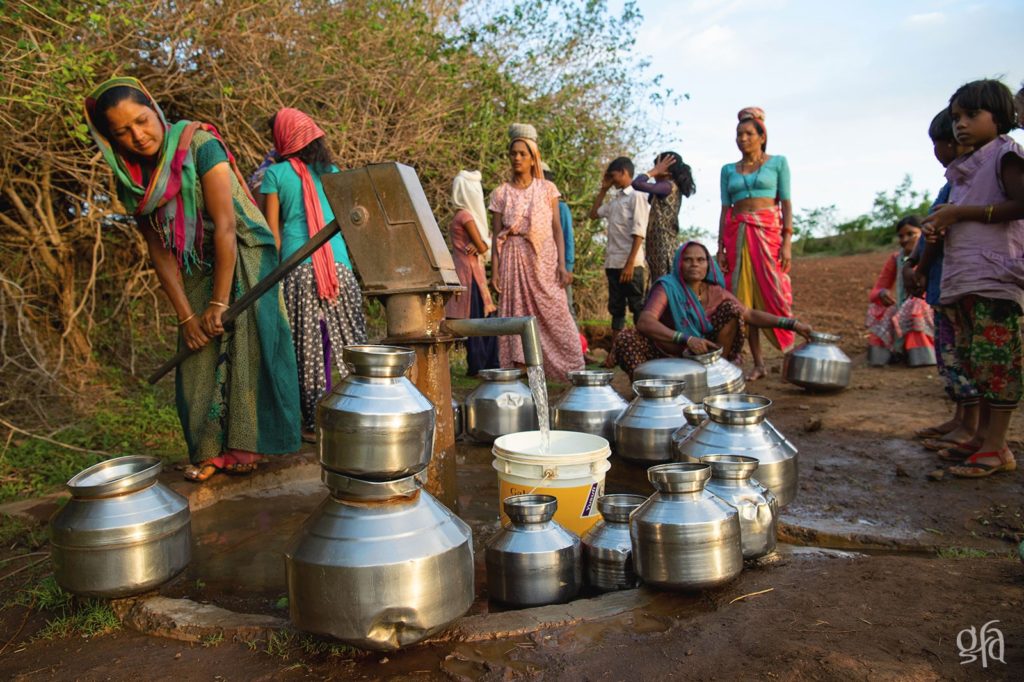STOCKHOLM – Experts from around the world will meet in Stockholm during World Water Week from August 25 to 30 to consider the growing concerns regarding water-related issues.
Access to clean water, particularly drinking water, has been the basis for numerous Missions Box News stories over the past few years as part of our effort to raise awareness among our readers.
According to UN Water,
“Water scarcity already affects every continent. Water use has been growing globally at more than twice the rate of the population increase in the last century, and an increasing number of regions are reaching the limit at which water services can be sustainably delivered, especially in arid regions.”
A recent article in Forbes explained that
“Water is so critical that its problems affect, and are affected by, all others – economy, poverty, population, waterborne diseases, famine, migration, and violence.”
Although there is not a global water shortage, there is a worldwide water crisis. In some developing regions, including areas of South Asia and Africa, thousands of people must walk several miles every day to retrieve water for cooking, drinking, and bathing. The groundwater they retrieve is typically contaminated and not fit for human consumption.
In his thesis on Dying of Thirst: The Global Water Crisis, Palmer Holt of InChrist Communications suggested that these people “wake up each morning knowing they must fight to survive. The day might begin with a long journey to a watering hole. Everything else depends on that crucial task. For others, the day begins and ends in wretched poverty—because chronic illness prevents them from working. And for some, a normal day means watching their children die slowly from waterborne disease.”
He added an exclamation point of sorts with these startling statistics:
- 502,000 people die each year from diarrhea—caused by unsafe drinking water.
- 1 billion people have no access to safely managed drinking water.
- 159 million people get their drinking water directly from surface water sources.
- 263 million must travel more than 30 minutes daily to collect their water.
- 9 billion people (27 percent of the world’s population) live in “potential severely water-scarce” areas.
A similar report by noted author Karen Mains, The Global Clean Water Crisis: Finding Solutions to Humanity’s Need for Pure Safe Water, noted that “A quarter of earth’s major cities face water stress.”
Beliefnet recently published a report that identified faith-based nonprofits that are fighting the world water crisis by making clean water a global reality.
The Forbes article focused attention on the efforts and impact of PepsiCo’s Positive Water Impact strategy around the globe, noting that
“By 2050, global demand for water will increase by as much as 50%, mostly in developing countries in Asia and Africa. At the same time, food production will need to increase by 70% to feed a growing and more prosperous population that will top 10 billion.”
“a $4.2 million investment, PepsiCo and WaterAid brought clean water to more than 200,000 people living in communities in southern India facing extreme water shortages, specifically in Palakkad (Kerala), Nelamangala (Karnataka), and Sri City (Andhra Pradesh), by adding new wells, harvesting rainwater in schools and building piped water supply systems.”
James Conca, the author of the Forbes article, urged readers to understand that the current and looming crisis, “should not be acceptable to us.” He urged more readers, NGOs, and companies like PepsiCo to step up to help our global neighbors in need.
We urge you to help also. Click here to learn more about how you can help to provide access to clean water for an entire community in South Asia.
To read more news on the World Water Crisis on Missions Box, go here.
Source:
- Forbes, World Water Week — Can We Provide Everyone With Clean Water?
- UN Water, World Water Week 2019 “Water for society – Including all”
- UN Water, Water Scarcity
- GFA Special Report, Dying of Thirst: The Global Water Crisis,
- GFA Special Report, The Global Clean Water Crisis: Finding Solutions to Humanity’s Need for Pure Safe Water
Image Source:
- Gospel for Asia, Photo of the Day
For more information about this, click here.





